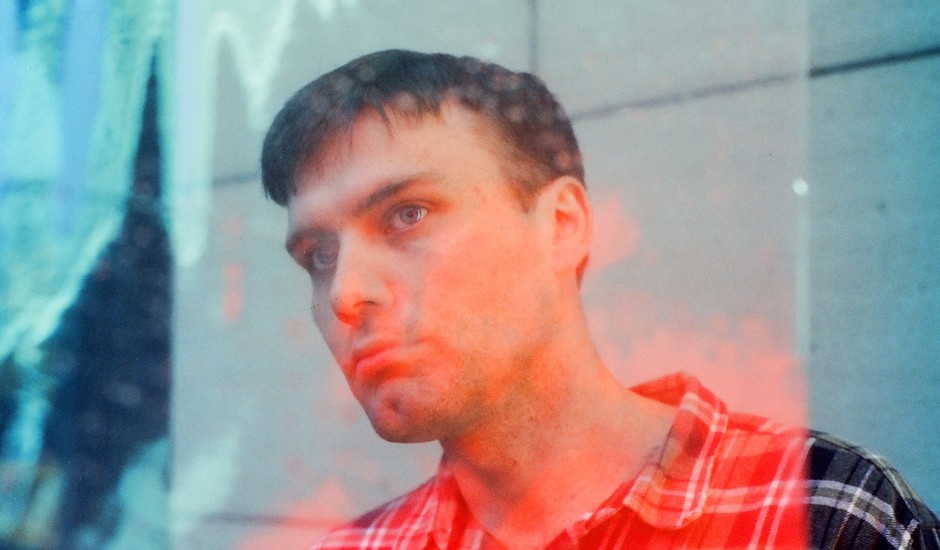 Introducing Reilly Stapleton, who slashes about in her creepy clip for ImpulseAfter a pairing of singles released last year, Impulse puts Stapleton's name on the blood-soaked map.
Introducing Reilly Stapleton, who slashes about in her creepy clip for ImpulseAfter a pairing of singles released last year, Impulse puts Stapleton's name on the blood-soaked map.

Album Walkthrough: Brightness dissects his self-titled second album
On his second album, Brightness takes the learnings from a stressful debut and applies them into a moment of brilliance.
In 2017, Brightness came out of nowhere - or at least it felt like he did. On his debut album Teething, then-London-living musician Alex Knight spotlighted a subtle take on 90s-inspired indie-rock and the hazy, rough-around-the-edges feeling of the sound's outer edges; jagged vocals and twinkling guitar uniting amongst a clouding haze that took the album into near-dream-pop territory - albeit a touch heavier and stormier. His early work was paraded by The FADER and Pitchfork, positioning Brightness as the next Australian act to seemingly find their success internationally rather than on their home ground, despite finding a home on Australian institution IOHYOU.
However, the success wasn't as sudden as those unfamiliar with Knight may see within the rise of headlines and reviews, and although it was a grand success - especially critically - he found the need for a change; his years spent moving between bands and performative spaces in the lead-up to Teething cumulating in a release that for Knight, felt like its end. He moved back to Australia (a fair distance from the London venues he'd often play in) and entered into a state of almost-solitude, having left his home back in the UK. "When I left London, I felt like I burned everything to the ground," he says. "I wasn't happy to do that, but it felt like I had no choice but to leave. I wasn't going to be any good to the people around me if I'd stayed."
Skip forward a few years, and Brightness - his self-titled second album - is the result of a reinvigorated need to write music following this state of solitude; the close connection to his music amplified by being isolated with it, distanced from the home and life he'd grew and evolved into across the years prior. There's a certain type of optimism that comes specifically from being at rock bottom," he explains on the album, and how its sound is built from the experiences before the record's eventual writing. "I had to make the choice to no longer look down. I wanted to look up."
The end result is nine tracks - just shy of thirty minutes - that take Brightness down an uplifting path, with the negativeness that shrouded his debut album's subtleties non-existent as he takes a leap forward into optimism. "I didn't want the lyrics to imply any kind of negativity. I didn't want one drop of that in this record," he says, and while the album does have moments that feel soft and macabre - the gentle, Sufjan Stevens-esque Feathers for example - they're masquerading moments of personal growth and resilience. The woman described as being on the edge of her wit on Feathers, for example, is taken under by a protective wing.
Elsewhere, Brightness ebbs and flows with a redefining sonic palette that separates itself from the sounds explored on Teething. Papessa contrasts the softness of Feathers before it with a looming psych-rock urgency, while Year Of The Goat breaks down "turmoil of being faced with a painful (but necessary) transition" through swooning guitar echoes and percussive rushes that layer amongst the single's choruses. Old Crow moulds his sound with the accessibility of indie-pop hooks, as Midnight Mass immediately after makes lyrical complexities into a grooving indie tune that's anything but complex.
"The versions of myself in these songs are at the edge of their wits, or literally at the edge of their lives," Knight explains on the album, and how his life's changing dynamic crept into the album's sense of looming rejuvenation, safe from the urgency that came before it. "There's this divine presence throughout, whether they're reaching for it or they're bathing in it or they're yearning for it. There's this spiritual relief at play."
Here, in a track-by-track walkthrough, Brightness breaks down his self-titled second album one song at a time, detailing the record's creation and themes one song at a time. Check it out below, and grab the record HERE.
Dallas
Dallas is about the thirst for spiritual relief. The inspiration came from being alone in a hotel room in Texas watching televangelist Peter Popoff touting Miracle Water on TV. I had a moment of empathy for the people in the crowd who were being swept up by Popoff’s words; their vulnerability.
Year Of The Goat
Is about the turmoil of being faced with a painful (but necessary) transition. As the inevitability of a hard reality bears down on the narrator and the stress bubbles over, the world around him begins to distort. I was reading ‘Voyage In The Dark’ by Jean Rhys around the time, which inspired some of the imagery.
Old Crow
Is set at a house party where the narrator has a whiskey-induced, transcendental moment where his friends appear as angels and events around him take on a lofty, secret meaning. Despite it feeling so close that he ‘…can taste time slowing down’ the ultimate, divine-reveal never arrives and he’s quickly jerked back to reality.
Midnight Mass
The most abstract song on the record. It centres around the connection between exhaustion and transcendence. The narrator is in a hypothermic stupor, wandering lost in a frozen forest and as he begins what’s called ‘paradoxical undressing’ (which is often followed by death) he hits a peak of dazed exaltation.
Feathers
Feathers recalls the bewilderment of being a child and watching my mum struggle amidst the collapse of her marriage. More broadly-speaking, it depicts a woman who despite being at the very edge of her wits is able to endure in being a protective wing to those who vitally need it.
Papessa
Describes a ‘sun-drunk man’ shuffling through a desert-scape aimlessly and a rejuvenating encounter he has with the image of ‘La Papessa’ (aka ‘The High Priestess’) of Tarot symbology, a personification of ‘Shekinah’ (divine-feminine presence).
Bukhansan
In 2017 I stayed in Korea for a month with an old friend. While I was there I hiked Bukhan Mountain (aka Bukhansan) and was overwhelmed by its beauty. I ended up making up a story for the lyric about a night out in Seoul with a group of friends, where one especially drunk friend claims he heard the voice of the goddess Mago while hiking Bukhansan. The group laugh it off but the narrator goes home pondering on it. It’s about the spiritual effects of nature and the tug-o-war between rationality and faith.
Vieni Qui
Vieni Qui is a spoken word track written in Italian. The title translates to ‘Come Here’. It depicts a dream-sequence conversation with an angel.
Thank You
An ode to the ‘divine-feminine’.
Follow Brightness: FACEBOOK
 Introducing Reilly Stapleton, who slashes about in her creepy clip for ImpulseAfter a pairing of singles released last year, Impulse puts Stapleton's name on the blood-soaked map.
Introducing Reilly Stapleton, who slashes about in her creepy clip for ImpulseAfter a pairing of singles released last year, Impulse puts Stapleton's name on the blood-soaked map.
 Premiere: Down For Tomorrow follow up their latest EP with Show Me That You CareTheir second EP came out back in June, but if you're still yet to meet the rising rock stars, this new single is the perfect entry point.
Premiere: Down For Tomorrow follow up their latest EP with Show Me That You CareTheir second EP came out back in June, but if you're still yet to meet the rising rock stars, this new single is the perfect entry point.